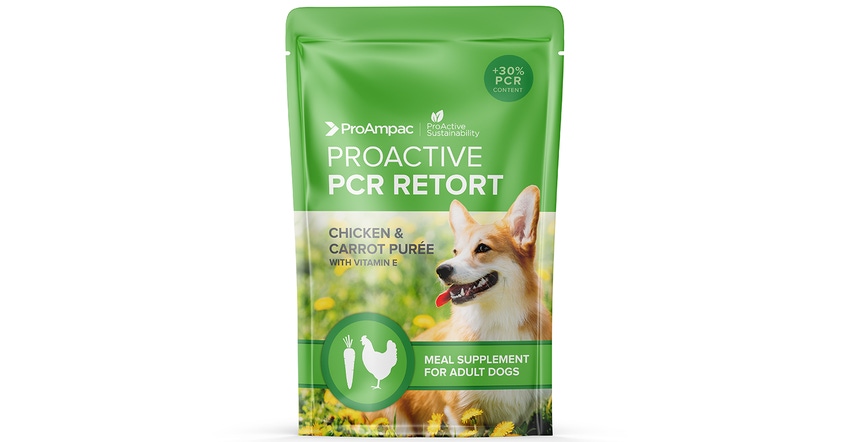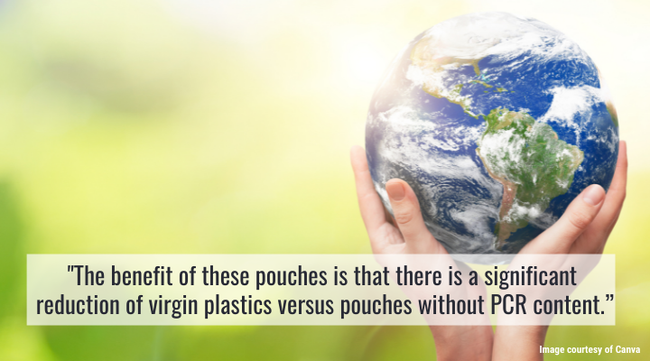ProAmpac’s ProActive PCR Retort barrier pouches for food promise 30% or more post-consumer recycle (PCR) content by weight.

Responding to the increased market demand for post-consumer recycled (PCR) packaging solutions, flexible packaging supplier ProAmpac launched ProActive PCR Retort pouches. EU and FDA compliant for food contact in retort applications, ProActive PCR Retort pouches are designed for pet and human food packaging.
ProActive PCR Retort pouches offer 30% percentage or greater PCR content by weight, reducing the use of virgin resins in the packaging. In addition, these innovative pouches comply with the United Kingdom (UK) Plastics Packaging Tax (PPT).
“To help customers meet their sustainability goals, ProActive PCR Retort pouches reduce the use of virgin resins and include high amounts of PCR while delivering the same packaging performance and filling line efficiency,” says Adam Grose, chief commercial officer for ProAmpac. “These pouches, coupled with our Recycle Ready Retort RT-3000, deliver on ProAmpac’s promise to innovate more sustainable retort packaging solutions.”

ProActive PCR Retort pouches have the same high-definition graphic quality as the standard retort pouches. Both graphics and package performance work to preserve brand identity and product freshness while advancing sustainability objectives.
“The materials are available as rollstock or as preformed pouches,” Nathan Klettlinger, director of global marketing, tells us. “We have been developing PCR Retort over the past 18 months.”
According to Klettlinger, ProActive PCR Retort has been validated on commercial filling and retort lines. “The technology is applicable to any retort packaging pouch size,” he adds.
Pouches boast robust functionality.
“ProActive PCR Retort pouches provide superior barrier and maintains its hermeticity during filling, retorting and distribution,” says Hesam Tabatabaei vice president of global product development and innovation for ProAmpac. “These innovative pouches offer excellent flex-crack resistance and easy-open tear functionality. Engineered using ProAmpac’s advanced material science expertise, ProActive PCR Retort pouches preserve the same filling line efficiency, shelf-life, mechanical performance and pin-hole resistance as standard retort pouches.”
How might brands promote the pouch's sustainability attributes?
“Brands can use graphics to communicate to consumers that the packaging is made with post-consumer-recycled content,” Klettlinger responds. “Depending on the specific product and application, they may want to list what percentage of the packaging consists of PCR.”
As far as post-use options, “these pouches may be disposed of with many other multi-material flexible packaging films,” offers Klettlinger. “At some UK retailers, these packages are collected at the store. The benefit of these pouches is that there is a significant reduction of virgin plastics versus pouches without PCR content.”
About the Author(s)
You May Also Like




